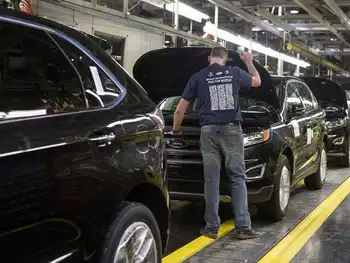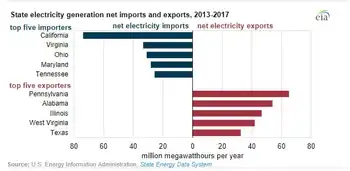Preparing cities for electric vehicles
By New York Times
Protective Relay Training - Basic
Our customized live online or in‑person group training can be delivered to your staff at your location.

- Live Online
- 12 hours Instructor-led
- Group Training Available
But it appears that the charging infrastructure is finally in the pick-and-shovel stage.
Since 2007, Better Place, a California-based company, has set up agreements to provide just such networks in Israel, Denmark, Australia, California, Hawaii and Canada. Better Place envisions charging stations (at homes, office buildings and parking garages) and battery-swapping locations along popular routes. And the company is working with the Renault-Nissan Alliance to supply electric cars as part of an integrated package.
Also in 2007, Coulomb Technologies was created as another California-based start-up with big plans to build what it calls ChargePoint Networks for E.V.’s. Along with Better Place, Coulomb (whose business model is somewhat different; it does not plan to own or swap batteries) is taking part in creating a green car infrastructure for San Francisco. Richard Lowenthal, Coulomb’s chief executive, said Coulomb expected to sell 900 stations this year in more than 100 cities and planned expansion into Europe. “Things are hopping for us,” he said.
Now thereÂ’s another player: Project Get Ready, a collaboration between the Rocky Mountain Institute think tank and an array of partners and technical advisers (including General Motors, Ford and Nissan). It doesnÂ’t propose to actually install charging stations; instead, itÂ’s created a Web-based template for cities to link up with local utilities, politicians and other power brokers.
Project Get Ready aims to sign up 20 cities to take part in its collaborative effort, but now it has three urban partners: Portland, Ore, Indianapolis and Raleigh, N.C.
Raleigh isn’t a hotbed for electric cars. During a February 24 teleconference, Mayor Charles Meeker said there’s just one state-owned E.V. in the city, but he hopes to have a fleet of 12 within a year. On city roads, he’d like to see the several dozen privately owned E.V.’s turn into “several hundred, if not thousands” over the next few years — all connected to a grid of charging stations.
“The automobile is only part of the equation,” Paul Mitchell of the Central Indiana Corporate Partnership said during the teleconference. “We need to create a smart grid akin to what we’ve seen in the I.T. industry, and we’ll work with utility companies to help develop it. It’s part of our stimulus strategy to attract jobs for our state and get the economy going again.”
Of the three cities, Portland is probably the no-brainer for plug-in vehicles because itÂ’s a green-minded city and already has what Joe Barra, a spokesman for the Portland General Electric utility, described as the nationÂ’s highest per capita penetration of hybrid cars. Mr. Barra said Portland has 10 charging stations in place and is working on another 10.
“It will be boring if this only happens in San Francisco,” said Laura Schewel, an institute consultant. “Our plan is to sign up 20 large and small cities and by June have them write up detailed plans for moving forward.”
Ms. Schewel said that local real-estate developers and auto dealers are likely to be enthusiastic participants in creating clean-car networks. In Raleigh, she said, a major new multiuse development has inquired about wiring its parking deck for charging stations. “The cost of prewiring new construction is a fifth to a tenth of retrofitting,” she said.











